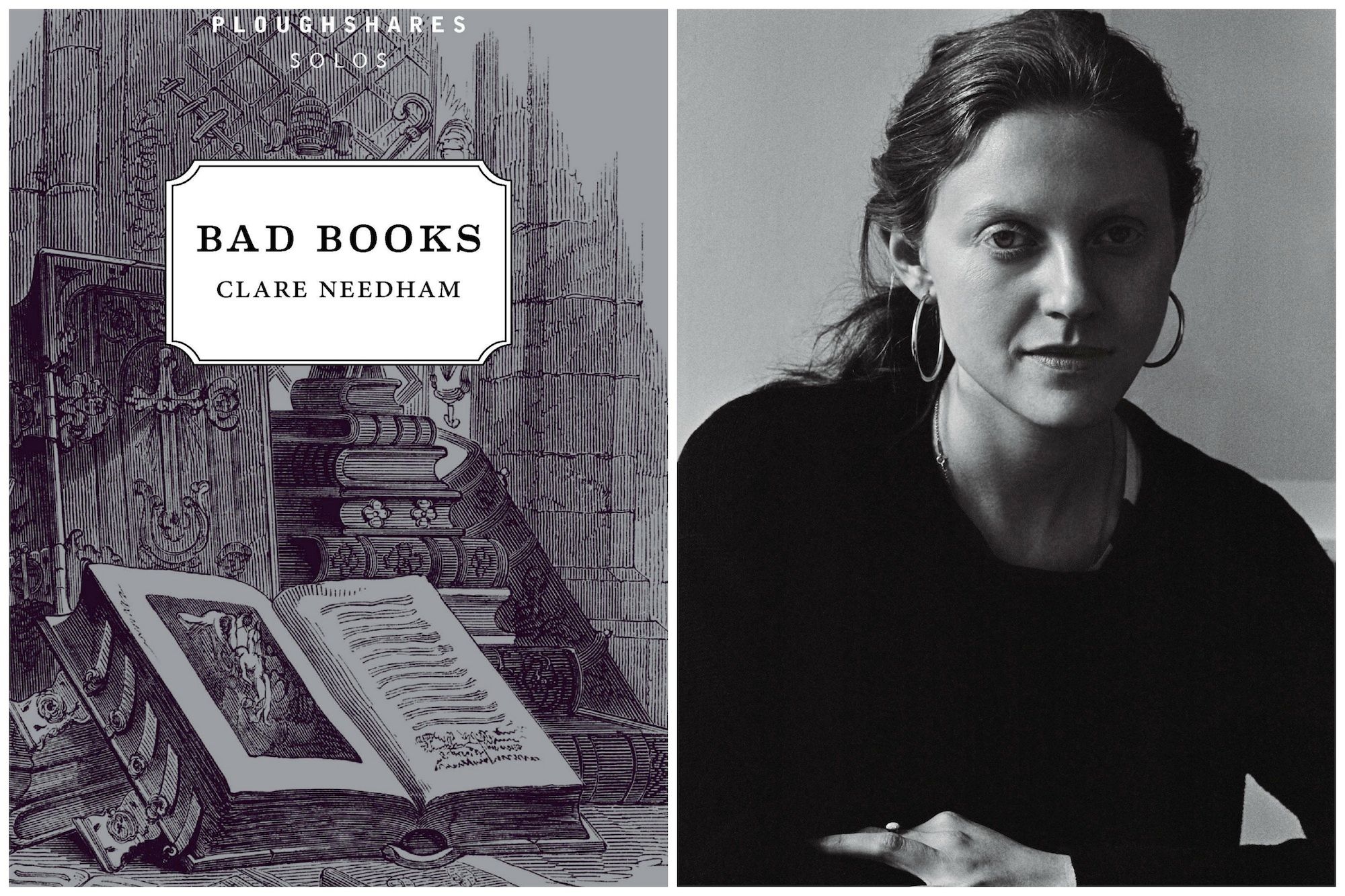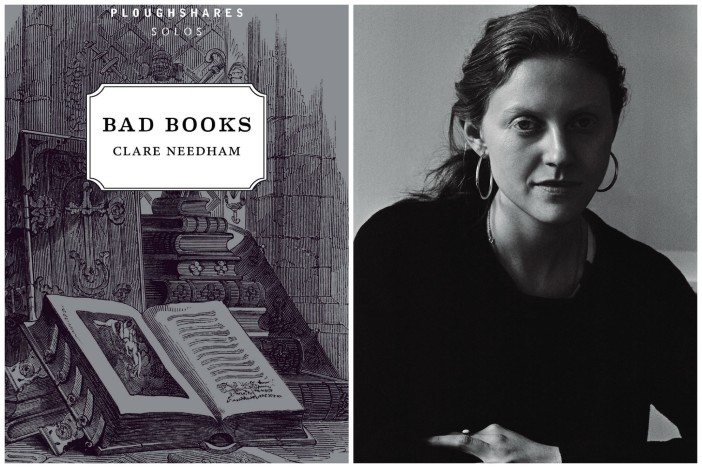Local Author Clare Needham Discusses Life, Beauty, Strength, And Her Novella, “Bad Books”


“I need to tell you straight away that this is a story of anti-self-discovery, and it is not always sunny in our favorite tourist spots.” — Clare Needham, author, “Bad Books”
Those were the words of warning — and intrigue — that Clinton Hill resident and author Clare Needham wrote to friends and family about her new novella, “Bad Books,” which was published in February by Ploughshares Solos. Within 44 pages, the work tells the story of PhD student Sofia’s summer in France, cataloguing the extensive collection of Nazi-era papers inherited by elderly scholar Monsieur Charles Vinson — an escape from her own stalled dissertation and life.
But her journey is more than that, both for Sofia and for the author, whose voice is simultaneously engaging and thorough, spanning nearly a decade of her own life between first draft and final publication. We chatted with Needham about the novella, her writing, and what it’s like to bring characters to life.
“Bad Books” is available on pshares.org and Kindle for $2.99.
—
What inspired “Bad Books”?
I started thinking about it between freshman and sophomore years of college while working at Columbia University’s
Rare Book & Manuscript Library, which had just acquired holdings of a left wing think tank that studied right wing groups in America. So it was my job to go through and impose some type of rudimentary order on them. I was working alone and going through the most awful paramilitary propaganda and racist military stuff. I decided that in order to make it more bearable, I would think of a story where someone else had to go through this.
Then I put it out of my mind while on scholarship to study French in France and returned to it in sophomore year. So I had this terribly depressing material, but also this experience of having gone straight to France in summertime where everything’s beautiful. It’s not autobiographical, but it is inspired by the first part of my life.
Now, I’ve been thinking: what do you do with troubling material from the past in the present moment? Do you ignore it? Acknowledge it? How does it affect the present? I think it’s also a morally troubling story in some ways.
Was it hard to write the dialogue and how do they represent the characters?
I actually think dialogue is the easiest thing to write. One reason I feel so strongly for these characters is this is the first story I wrote that it didn’t feel forced or fake. I knew I had something there and could keep coming. I could clearly see Sofia and Charles.
The interesting thing about this book is they’re supposed to be speaking French all the time. So I would imagine Charles speaking French and then translate it. Also, Charles is an incredibly learned man. When you have a character like that, you can learn a lot. Sofia, too. She has a different kind of intelligence. You have to believe she’s smart enough to be in the PhD program, and has a way of speaking that’s not entirely sincere, but sounds good.
What themes did you focus on?
I’m always intrigued by the surface of life: things look beautiful, but then what lies underneath is this history of a troubled place. In this novella, it touches on Vichy France in and after the Second World War, with anti-Semitism in France. You come in with Sofia with the blind American perspective, untroubled by the past in some ways, self-interested and seeing this as a temporary way out. And you have this beautiful French couple with an aesthetically pleasing life, but Charles is really troubled by his family history. So there’s the theme of how do you live a beautiful life with ugly things.I think it’s mostly about how you try to reconcile, and probably fail, putting really ugly things next to beautiful things. It’s not an anti-coming of age story. But in coming of age stories, you have the sense a person is learning important things about herself. In this story, it’s more compelling.
Is there a positive constant?
I think Sofia doesn’t have any source of strength. I don’t think she has much in her life. As you go on, you see how she’s sort of lightly sociopathic, but also inspiring sadness because you don’t know quite what has happened to her.
When I edited it four years after writing it, I was really struck by how it is so clear that something happened to Sofia that we never find out about and it’s made her this way. We get a sense that she’s an empty person and she can’t help herself and can’t help others around her so she kind of needs and wants. . . inner resources.
Charles is different. For one, he’s deeply in love with his wife. He has his scholarship and his life’s work, his house. And as much as he seems to no longer be in touch with his family, he still has love in his life.
Do characters leapt out to you fully formed?
They were almost fully formed when I sat down to write. I think Charles was most clear to me. Sofia, in part because she’s the narrator and an unreliable narrator of sorts who doesn’t do much reflection, she was maybe slightly more difficult.
Why are you a writer?
Writing is thrilling and terrifying because when you sit down in front of a blank page or blank screen, you can write absolutely anything you want, something that’s never been said before, and create an entire world out of words. But it’s terrifying because what happens often is you end up writing cliches or something that’s unimportant or boring. But there’s always a chance that you’ll write something new, important, urgent. The potential to do something important excites me.
What’s next?
I’m working on a second novel that, everything about it is difficult. And I might potentially work on another novella because I like the length — longer than a short story and shorter than a novel. I love short stories and poetry, but don’t know how to write them.